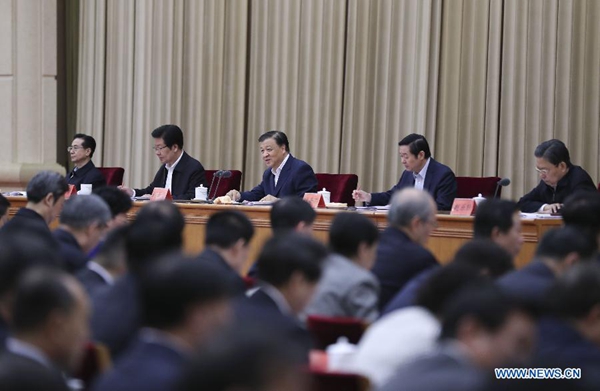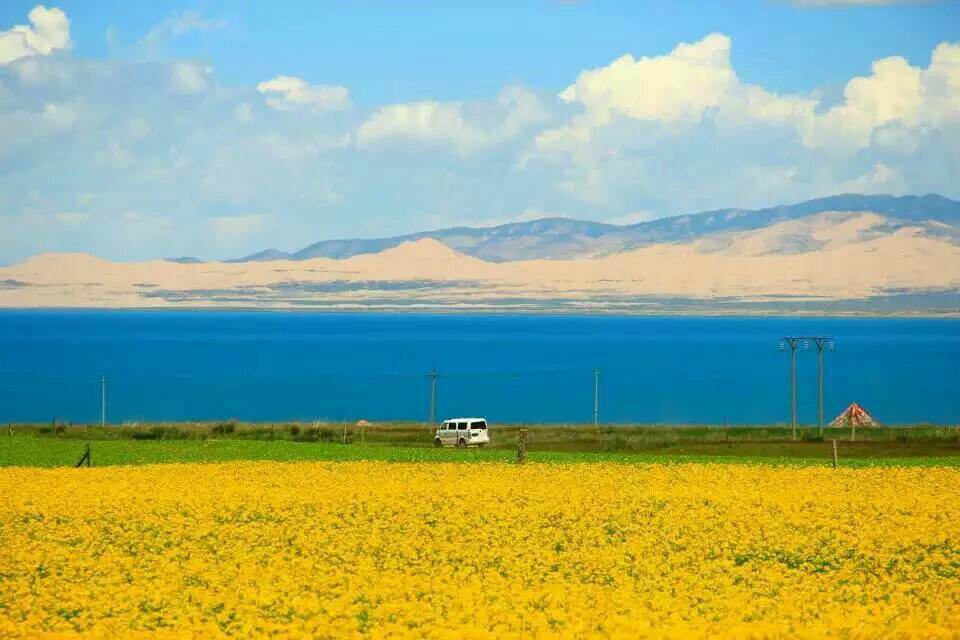Xi urges strengthened party education campaign
|
|
|
Liu Yunshan (C, rear), a member of the Standing Committee of the Political Bureau of the Communist Party of China (CPC) Central Committee, addresses a meeting for further implementation of a year-long education campaign within the CPC to strengthen Party discipline in Beijing, capital of China, April 16, 2017. [Photo/Xinhua] |
President Xi Jinping has called for further implementation of a year-long education campaign within the Communist Party of China (CPC) to strengthen Party discipline.
Xi, who is also general secretary of the CPC Central Committee and chairman of the Central Military Commission, made the remarks in an instruction on the campaign, which focuses on the study of the Party Constitution and rules, as well as the speeches made by Xi, and calls for being qualified Party members.
In the instruction read at a meeting held on Sunday, Xi noted that the campaign launched last year had achieved remarkable results.
The campaign has helped with the strict management of the CPC and must be carried on, said Xi.
The campaign should prioritize political training, Party members’ words and deeds, the latest theoretical developments and it should guide all to become qualified Party members, Xi noted.
In addition, the campaign must focus on “a key few” leading officials and grassroots party branches. It should also promote a solution-based approach and make full use of role models, according to Xi.
Xi urged CPC committees at various levels to support the campaign and make sure the achievements provide organizational guarantees that will promote balanced economic, political, cultural, social, and ecological progress and coordinated implementation of the Four-Pronged Comprehensive Strategy.
The Four-Pronged Comprehensive Strategy refers to making comprehensive moves to finish building a moderately prosperous society in all respects, deepen reform, advance the law-based governance of China, and strengthen Party self-governance.
Liu Yunshan, a member of the Standing Committee of the Political Bureau of the CPC Central Committee, said at the meeting that through the campaign, CPC members should stay highly consistent in their thoughts, politics and actions, with CPC Central Committee with Comrade Xi Jinping as the core.
More effective rules and systems should be put forward to address the behavior of “a key few” leading officials, so that they can set an example with their loyalty, integrity and responsibility, said Liu.
Liu also called for combination of the campaign and the central tasks to inspire CPC members to contribute to the overall reform and development.
Zhao Leji, head of the CPC Central Committee’s organization department, read Xi’s instruction at the meeting.
Senior leader Liu Qibao, Zhang Chunxian and Zhao Hongzhu attended the meeting.

